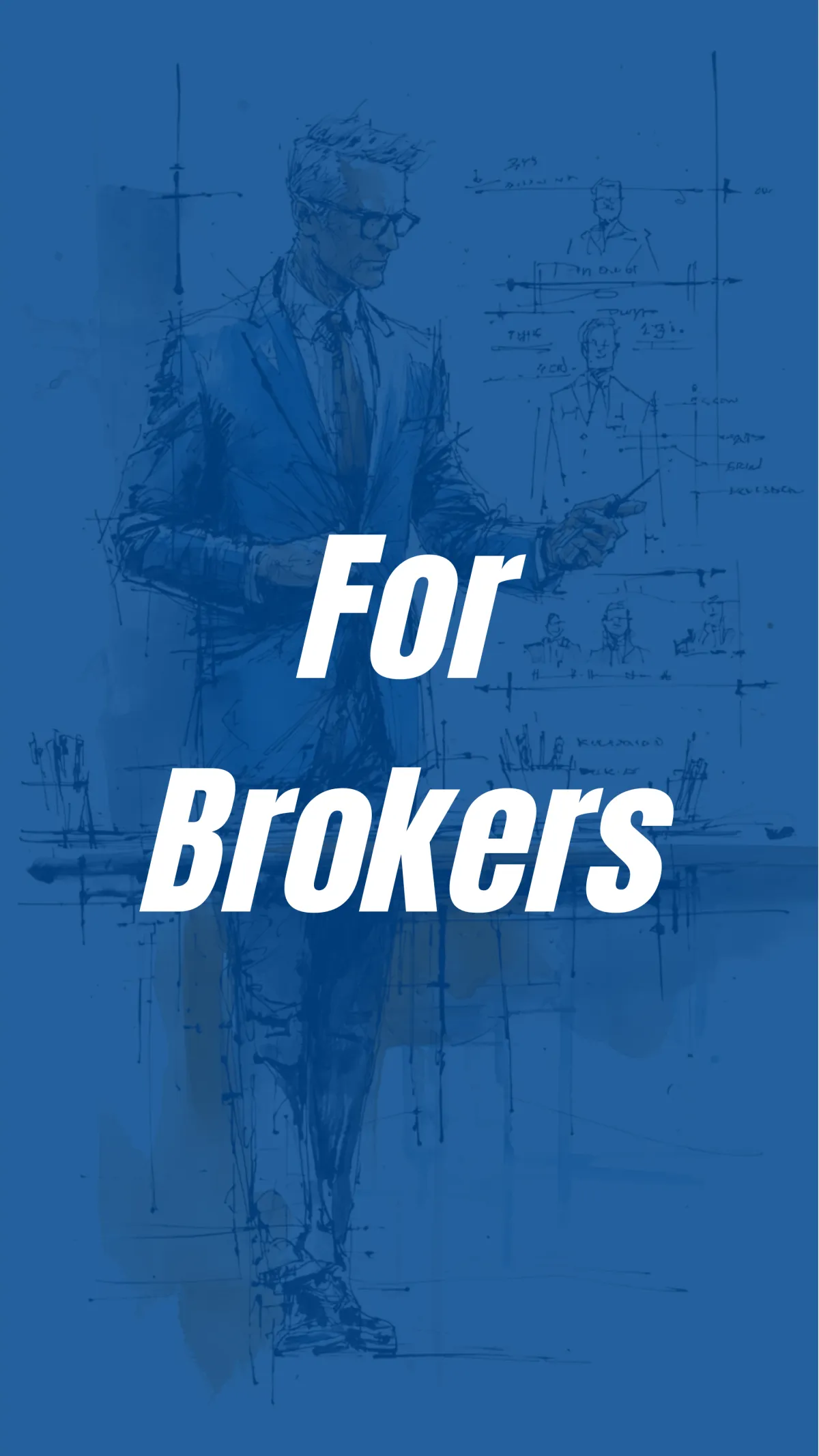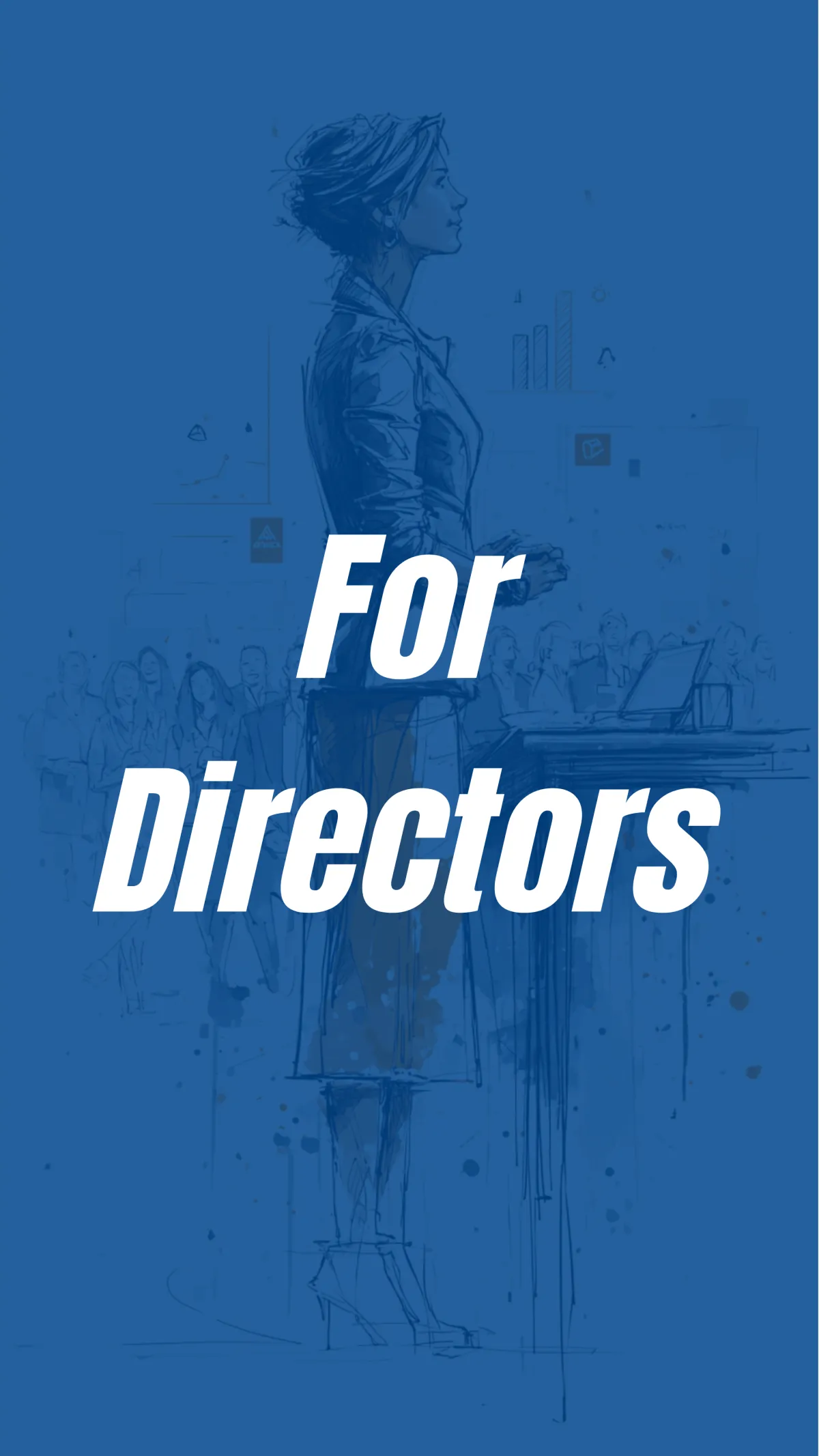
How Can Brokers Leverage Event Data?
You're busy. You host open houses, sponsor local events, and maybe even run webinars. Each event creates a pile of information – names, emails, comments, attendance numbers. But what happens to all that information? Often, it just sits there. You'll learn exactly how can brokers leverage event data to truly boost their business. If you've ever wondered if there's more you could be doing with the details from your marketing efforts, you're right. Exploring how can brokers leverage event data can change the way you see every interaction and every event lead.
Think about the last open house you held. You had a sign-in sheet, right? Maybe you chatted with folks about what they were looking for. This is event data. It's the bits and pieces of information you collect whenever your brokerage interacts with potential or current clients through an organized activity. This includes everything from who attended, what they engaged with, to the feedback they gave, impacting your sales team and each real estate agent.
This information is like a hidden treasure map for real estate professionals, including estate agents. It can point you to serious buyers and sellers. It can also tell you what's working with your marketing and what's not, allowing a real estate pro to make informed decisions.
Unlock your potential with AI-powered solutions tailored to your real estate needs. Save time, grow faster, and work smarter. Schedule your discovery session now at lesix.agency/discovery.
Understanding Event Data in Real Estate
So, what counts as event data when you're a real estate broker or estate broker? It's broader than you might think. It's not just about the sign-up sheets from your weekend open houses. It's also about who registered for your first-time homebuyer webinar, how many questions they asked, and which polls they answered; this information often comes from your event platform or event app.
It includes details from your booth at the local community fair. Think about how many brochures were taken, or who dropped a business card for a free home valuation; even data points like dwell time at your booth can be revealing. Even digital events like online property tours or Q&A sessions on social media generate valuable data. You get information on viewership, engagement rates, and comments, which can be critical for understanding your audience.
Many brokers collect some of this information, sometimes referred to as business data. But often, it gets stored in separate spreadsheets, on random notepads, or just stays in someone's memory. This makes it tough to see the big picture. You might miss important patterns or chances to connect with promising leads because the information isn't properly managed and used. The real power comes when you gather, organize, and study this data systematically, transforming raw data into actionable business intelligence.
The variety of data collect extends to post-event surveys, social media mentions related to the event, and even informal feedback given to a real estate agent. All these fragments, when pieced together, form a comprehensive picture. Without a strategy to harness data, a real estate broker might be sitting on a goldmine without knowing it, impacting their organization's ability to drive growth.
Key Benefits of Using Event Data for Brokers
When you start actively using your event data, good things happen. It's not just about being more organized. It's about making smarter moves that help your brokerage grow and refine management strategies.
First off, your lead generation gets a serious upgrade. Instead of just a list of names, event data helps you understand who is genuinely interested. For example, someone who attended an investor seminar and asked detailed questions about cap rates is likely a hotter event lead than someone who just grabbed a cookie at an open house and left. This allows your sales team to prioritize their follow-up efforts effectively, improving conversion rates.
Then there's your marketing return on investment, or ROI. Hosting events costs money and time. Event data helps you see which events and which marketing channel give you the best bang for your buck. Maybe your luxury property showcases attract high-net-worth clients who convert, while general neighborhood meet-and-greets don't yield much. Understanding marketing ROI helps you invest wisely in future events and marketing materials, and it highlights which performance indicators are most relevant.
Building stronger client relationships is another big plus. When you remember details from past interactions – like someone mentioning they need a home office during an event – and bring it up in a follow-up, it shows you listen. This personal touch, perhaps even in a subsequent sales pitch, can make a huge difference in a competitive market. It makes clients feel valued and understood, crucial for long-term loyalty in commercial real estate and residential sectors alike.
Finally, event data powers smarter business decisions. Should you host more webinars or focus on in-person seminars? Which topics draw the biggest, most engaged crowds? The answers are in your data. It helps you refine your event strategy and risk management strategies for better results each time, allowing you to answer questions before they are even asked by potential clients.
Leveraging data in this manner allows estate agents to anticipate client needs. For example, data from a financial planning seminar might indicate a group of attendees interested in real estate as an investment. This insight allows for targeted outreach, offering services related to wealth management through property investment, or even specialized advice on tax planning related to real estate transactions. Such proactive engagement can significantly drive growth for the brokerage.
Practical Steps for How can brokers leverage event data?
Alright, let's get down to the "how." It's one thing to know event data is valuable. It's another to actually use it well. Here are some practical steps you can follow to harness data effectively.

Step 1: Collecting Event Data Effectively
Good data collection is the foundation. You need consistent methods for data collection across all types of events. For in-person events like open houses or seminars, digital sign-in forms on a tablet are great, often facilitated by an event app. They reduce errors from bad handwriting and can directly feed into a database or CRM, improving the quality of data you're collecting. Tools like Google Forms or specialized event check-in apps work well.
For online events such as webinars, most event platform solutions (like Zoom or GoToWebinar) automatically track registrants, attendees, attention span, and Q&A. Make certain you know how to get these reports and that the event tech you use provides comprehensive data points. You should also gather feedback consistently. A short post-event survey, whether digital or paper, can give amazing insights into what people liked and what they're looking for next, helping you plan future events.
What information should you aim to collect beyond the basics like name, email address, and phone number? Think about data points like their motivation (buyer, seller, investor), timeline, preferred property types, or how they heard about the event. The more relevant details you capture from various data sources, the better you can segment and personalize later on, even for specialized areas like commercial real estate. Consider if you need to capture any specific compliance data, depending on your local regulations and the type of information gathered.
Step 2: Cleaning and Organizing Your Data
Raw data is often messy. You'll have typos, missing information, and duplicates. So, the next crucial step is cleaning it up. This might sound tedious, but it's vital for accurate data analysis and subsequent business intelligence. Set aside regular time, perhaps weekly or after each major event, to go through new data.
Standardize formats for things like phone numbers and addresses. Merge duplicate entries. Correct obvious spelling errors. This process is much easier if you use a Customer Relationship Management (CRM) system, as many have tools to help with data cleaning and de-duplication. If you're using spreadsheets, be diligent; if data isn't clean, your efforts to leverage data will be hampered.
Once clean, organize your data. Using tags or categories is very helpful. You could tag leads based on the event they attended ("Open House Elm St," "Investor Webinar Q1"), their interest level ("Hot Lead," "Nurture"), or property preferences ("3-Bed Condo," "Needs Yard"). This organization makes it easier to pull specific lists for targeted follow-ups or analysis, and it's time well spent. Good organization helps in analyzing data effectively and understanding what the data doesn't explicitly state but implies.
Step 3: Analyzing Event Data for Insights
With clean, organized data, you can start looking for gold. What stories does your information tell? Are certain types of events drawing more qualified leads? For example, do your "Staging Your Home to Sell" workshops have a higher conversion rate to listings compared to general market update seminars? Such data analytics can highlight key performance indicators (KPIs).
Look at attendee demographics. Are your events attracting your ideal clients? If you're targeting millennials, but mostly retirees attend your webinars, you might need to rethink your promotion strategy or content. Study engagement metrics from online events. High drop-off rates at a certain point in your webinar might indicate the content wasn't engaging enough there; this is a critical performance indicator. You might encounter specific difficulties when interpreting certain data points, so using robust analysis tools is beneficial.
Track those conversion rates. How many event attendees eventually became clients? How long did it take? What was the average commission from leads generated at specific events? This helps you calculate the true ROI of your event marketing efforts. Pinpointing what makes an event successful helps you replicate that success and refine your comprehensive strategy. If the data doesn't show expected results, it's an opportunity to learn and adjust, not a failure.
Some data providers can offer supplementary demographic or psychographic information, which can enrich your existing event data. When you analyze data, look for patterns that reveal unmet needs or emerging trends. This level of business intelligence is invaluable for staying ahead in the competitive real estate market, including the commercial real field.
Step 4: Turning Insights into Action
Insights are only useful if they lead to action. Based on your analysis, how can you improve? If you found that attendees from a specific webinar segment showed high interest in downsizing, create a targeted email campaign for them with relevant listings and resources. This level of personalization is powerful and helps answer questions proactively.
Use attendee feedback to make your next events even better. If people said a Q&A session was too short, extend it next time. If a topic was particularly popular, consider a follow-up event or a more advanced workshop on it. This shows you're responsive to your audience's needs and are committed to continuous improvement. Such actions are fundamental to effective management strategies and risk management.
Your data analysis might also show that certain promotional channels are more effective for specific events. Perhaps LinkedIn ads work best for your commercial real estate seminars, while Facebook ads are better for community open houses. Adjust your marketing spend accordingly. You can continuously refine your strategies based on what the data tells you, driving growth and improving how your real estate agents interact with leads. This active use of data helps in financial planning for future marketing budgets.
For example, if data indicates a high interest in estate planning among a segment of your clients after a wealth management seminar, you could partner with a local law firm to offer a joint webinar. This not only provides value but also positions your brokerage as a resourceful real estate pro. It's time to transform these insights into tangible benefits for your clients and your business.
Step 5: Integrating Event Data with Other Systems
Your event data shouldn't live in a silo. To get the most from it, integrate it with your other business systems and data systems. Your CRM is the most important one. When event attendee information flows into your CRM, it enriches your client profiles. This gives your real estate agents a more complete picture of each lead's journey and interests.
This integration lets you use event data in your broader digital marketing campaigns. For instance, you can add event attendees to specific email nurture sequences, perhaps using their email address obtained with consent. These sequences can offer content related to the event they attended or their expressed interests. Good email marketing practices combined with event data make your messages more relevant and less likely to be ignored. Consider data security at every step of integration to maintain client trust and comply with privacy policy statements; you risk losing clients if data is mishandled.
Ultimately, these connected systems help align your event strategy with your overall sales and business goals. Everyone in the brokerage can access and act on a consistent set of information. This improves teamwork, supports streamlined processes, and helps give clients a seamless experience, whether they interact via a client login portal or directly with an estate agent. Integrating data ensures your organization's ability to adapt and thrive, and helps mitigate risks associated with fragmented information.
Moreover, robust data systems can provide insights into global trade or supply chain issues that might impact commercial real estate clients. While not always directly from event data, integrating diverse data sources creates a more holistic view. This comprehensive approach is what truly allows a brokerage to leverage data for a competitive edge.
Real-World Scenarios: Event Data in Action
Let's paint a picture of how this works in practice for a real estate broker. Imagine you hosted an open house for a property on Oak Street. You collected names and noted which attendees spent a lot of time in the master suite or asked about school districts using your event app. By analyzing this, you identify two families very interested in local schools. You can follow up with personalized information about nearby top-rated schools and family-friendly amenities, significantly increasing your chances of connecting and showcasing your expertise as a dedicated real estate pro.
Or consider a webinar you ran on "Navigating the Current Mortgage Market." Your attendance data from the event platform shows a high number of first-time homebuyers. You also see from poll responses that many are concerned about down payments. You can then create a follow-up email series specifically for these attendees. It could feature information on down payment assistance programs and connect them with trusted mortgage brokers specializing in first-time buyer loans. This demonstrates an understanding of their financial planning needs.
What about that community festival where your brokerage sponsored a booth? You tracked how many people stopped by and requested a market analysis using simple data collection methods. Six months later, you review which of those individuals actually listed their homes. If the conversion rate is low despite high traffic, you might decide that type of sponsorship isn't the best use of your marketing budget next year, or you might adjust your booth strategy to capture more serious event leads. This kind of data analysis directly impacts your marketing efforts and budget allocation.
A commercial real estate agent might host a seminar on local economic development. The event data, including questions asked and industries represented by attendees, can reveal opportunities in specific sectors like global trade or supply chain logistics. This allows the sales team to tailor their outreach, perhaps focusing on businesses looking to expand their footprint, thus leveraging data for targeted growth.

Tools to Help You Manage Event Data
You don't need to be a tech wizard to manage event data, but the right tools make it much simpler. Many modern real estate CRMs have built-in features for tracking event attendance and managing leads generated from events. Systems like LionDesk, Follow Up Boss, or Top Producer often include functionalities that can help streamline processes. Look for CRMs that let you easily import attendee lists and tag contacts based on event participation; these are invaluable for any real estate agent or estate agent.
Dedicated event management platforms or general event tech solutions like Eventbrite or Cvent can also be very useful, especially for larger or more frequent events. These platforms often handle everything from registration and ticketing to post-event analytics and communication, including data points about how users interact with your registration pages (often tracked via methods like how cookies collect data, which should be outlined in your privacy policy). They can give sophisticated reports on attendance and engagement. Even simple tools have their place, and an effective event app can centralize much of this data collection.
Don't underestimate the power of spreadsheets like Google Sheets or Microsoft Excel for smaller brokerages or if you're just starting. With good organization and use of formulas, you can still perform effective data cleaning and basic data analysis. The main thing is to pick tools that fit your brokerage's size, budget, and technical comfort level, and then use them consistently. Utilizing the right analysis tools and potentially integrating with data providers can significantly enhance your understanding and use of collected business data, leading to more effective marketing materials and industry news awareness.
Below is a table outlining some common event types and the data you might collect:

Selecting appropriate event tech can make all these data collection and analysis tasks more efficient. Whether it's a comprehensive event platform or a specialized event app, the goal is to make data accessible and actionable for your sales team and individual real estate agents. Remember to consider data security and how data you're collecting aligns with your overall business objectives and helps mitigate risks. If you risk losing data or using inaccurate data, your efforts will be counterproductive.
Conclusion
So, we've explored the many ways you can put your event data to work. It's clear that this information is more than just names on a list; it's a vital component of business intelligence. It's a rich source of insights that can refine your marketing, strengthen client bonds, and ultimately, grow your brokerage. The core question of how can brokers leverage event data is answered by a systematic approach: collect diligently, organize smartly, analyze deeply, and act decisively using the best data analytics practices.
Start treating your event data, including information on every event lead, like the valuable asset it is. Integrate it into your comprehensive strategy, ensure your data systems are robust, and empower your sales team and real estate agents with these insights. By doing so, you'll likely see a real difference in your results, turning simple data points into significant achievements for your real estate business. This consistent effort to harness data will distinguish your brokerage in a competitive market.
Ready to take your real estate success to the next level? Schedule your discovery session today at lesix.agency/discovery. Stay ahead with tips and insights—subscribe to our newsletter at lesix.agency/newsletter.










